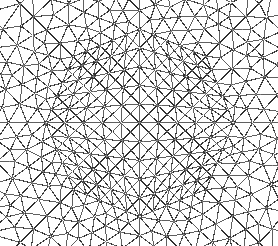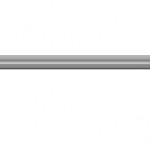I'm doing a spot of research on artist that use the 'net as a medium.…
Counteracting the control society
The framing problems of contemporary art differ fundamentally from those of the twentieth-century avant-guarde. The spread of network technologies disabled the disciplinary power of the state apparatus and gave way to an elastic fluctuation of continuously monitored environments. As a consequence, the vanguard gesture of breaking the mould can no longer be productive.
Artistic activity has been limited by cultural mores, been framed by social and cultural boundaries. Frames that enabled the artistic activities to be perceived as being different from activities of the life-world. Twentieth-century vanguards have again and again tried to cross, negate or overcome whatever boundary they encountered, whatever frame they found themselves in.
This was a productive strategy in a situation where nation-states exercised power over both individual and collective bodies. From the beginning, one of the most important functions of the nation-state was to match size and composition of the population to the needs of emerging capitalism and industrialisation. The population should grow, and individual citizens must be both useful and compliant. This is Foucault’s biopower: power over the biological life of both individual and collective bodies by discipline and regulation.
In recent times the spread of network technologies spells the diminution of power of the nation-state and the collapse of national borders. Within the space of a hundred years, the nation state has gone from being the dominant global entity to a network of mid-level players in the global economy. The gap left by the waning power of the nation-state and its institutions is being filled by conglomerates of global companies that commercialise an increasing number of aspects of the daily life of individuals. The effects of this transition are spelled out by both Debord (‘society of the spectacle’) and Deleuze (‘society of control’).
Deleuze foresaw the end of the disciplinary regime that had been exercised over bodies in the enclosed spaces of the school, the barracks, the hospital, the asylum and the factory. He envisaged its replacement by omnipresent systems of computerized tracking and information gathering, administered by the more volatile structure of the corporation. State power being surpassed by miniaturized, mobile processes of surveillance. The useful and compliant citizen transformed into his seeming opposite: a citizen driven by personal motivation. A motivation elicited, manipulated and channelled by the psychological and all-pervasive function of marketing. Discipline and morality no longer to be supplied by the nation-state and its organs, but inferred by individuals from marketing slogans and media-created spectacles.
 The escape of populations from their disciplinary moulds is counteracted by the deployment of systems that modulate the flow of experience of the individual “like a self-deforming cast that will continuously change from one moment to the other, or like a sieve whose mesh will transmute from point to point.” Examples: thermal cameras, electronic detention, mobile phones, the internet. These constitute the all-pervasive network of the control society, so pliant as to be almost incommensurable, encompassing and permeating the life of the individual. This pliable, elastic network does not offer any tangible limit that can be exploded, transgressed, undermined or overcome.
The escape of populations from their disciplinary moulds is counteracted by the deployment of systems that modulate the flow of experience of the individual “like a self-deforming cast that will continuously change from one moment to the other, or like a sieve whose mesh will transmute from point to point.” Examples: thermal cameras, electronic detention, mobile phones, the internet. These constitute the all-pervasive network of the control society, so pliant as to be almost incommensurable, encompassing and permeating the life of the individual. This pliable, elastic network does not offer any tangible limit that can be exploded, transgressed, undermined or overcome.
The artistic gesture of making boundaries visible by crossing them has little effect within the control structure of the network, because the network will simply transform around the gesture. The network can only be perceived in motion, action. If there is to be an artistic resistance to the control society, environments must be created that expose modelization of behavior, preconceived flows of experience. What is needed is a way to experience, expose and counteract the network. “An intervention that consists not in the rupture of generic or disciplinary boundaries, but instead in a deliberately localizing confrontation with diffuse, all-embracing cultural forms”.
Sources:
Brian Holmes ‘The potential personality’ click here
Ricardo Basbaum ‘Differences between them and us’ click here
Ilja Fase ‘De wil tot (w)eten: aan tafel met Foucault’ click here
Peter Lewis and Michael Gadiel ‘The nation state in crisis’ click here
| « Linen closet live | <-- previous post | next post --> | Ricardo Basbaum: obstacles » |
|---|







